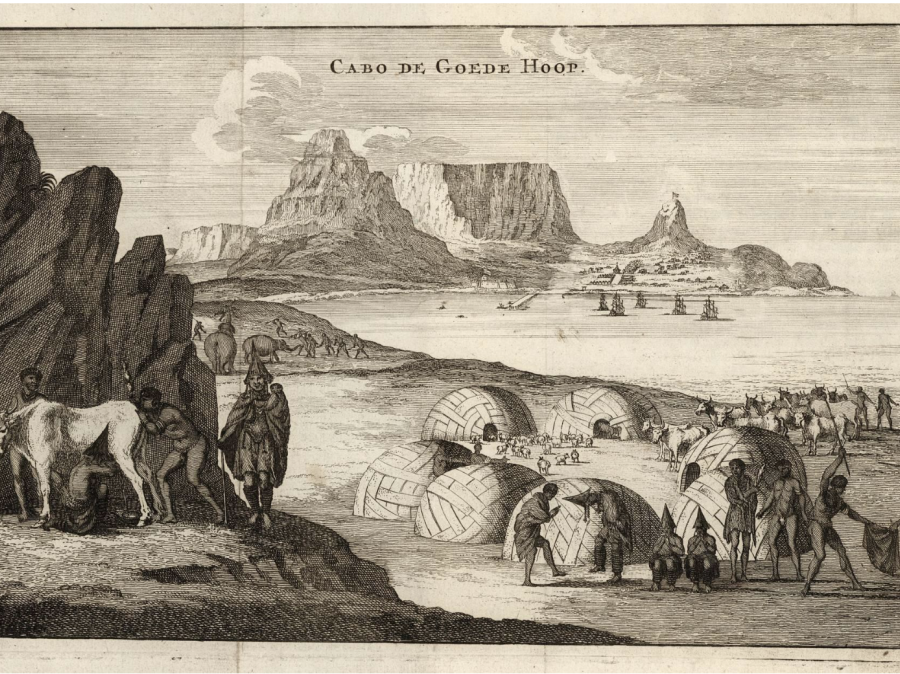(De)Colonial Language Politics: Creolizing Poetics in Hans Grimm and Sharon Dodua Otoo

Illustration from Abraham Bogaert’s Historische Reizen door d’oostersche deelen van Asia (1711). The foreground depicts Khoikhoi settlement at the Cape while the background shows the arrival of Dutch ships and intimates the beginning of European colonial settlement. The juxtaposition suggests a contact zone.
Contemporary post-migrant literary culture tends to foreground and celebrate multilingualism as a key index of transnational entanglements in Germany (and beyond) today. This talk attends to a fraught historical precursor to the current multilingual cultural formation: namely, colonial culture. In conversation with Fatima El-Tayeb’s application of creolité to postmigrant minority cultures in contemporary Europe, this talk goes back to Caribbean cultural theory’s models of creolization in colonial contact zones to analyze (settler-)colonial multilingualism as an important historical case study in which literary multilingualism performs a cultural politics quite antithetical to the anti-racist and decolonial thrust typical of postmigrant literature today. Juxtaposing close readings of “creolizing” storytelling (in the settler-colonial sense) by the colonial author Hans Grimm with “creolizing” storytelling (in the postmigrant sense) by contemporary author Sharon Dodua Otoo, the talk traces the complexity of constructing literary multilingualism as a decolonial dispositif in the face of German colonial culture’s far-reaching penetration of literature and language identity.
Juan-Jacques Aupiais is Assistant Professor of German in the Department of Germanic Languages and Literatures at the Ohio State University. His work takes a transnational approach to German literature and culture from the 19th century to the present, with a particular focus on literary multilingualism and translation studies, migration, colonial culture and science, and decolonial critique. His current book project leverages postcolonial conceptions of creolization (in cultural and poetic terms) to explore the ways literary multilingualism has been generatively operationalized in service, contestation, or critique of colonial cultural politics in German literary history, with analyses of texts by colonial-era writers (Hans Grimm, Hendrik Witbooi) as well as contemporary postcolonial authors (Yoko Tawada, Sharon Dodua Otoo). His work on the intersections between decoloniality and German critical theory, particularly in Alexander Kluge’s writings, has appeared in The Germanic Review and the Alexander Kluge-Jahrbuch.




